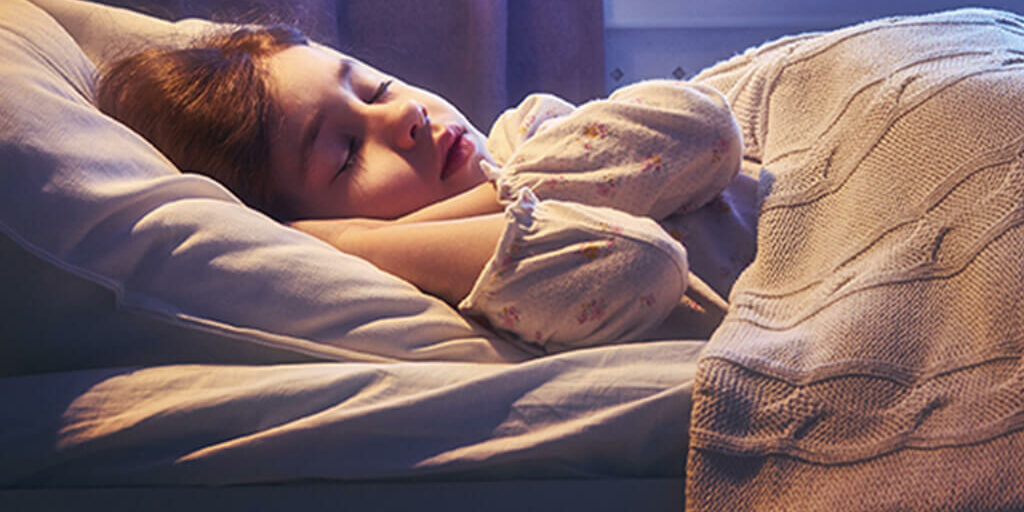We are launching a new resource to help families who have a child with a brain condition to get a good night’s sleep. ‘Sleep – tips and techniques for families who have a child with a brain condition’ explains techniques to help with the ten most common sleep problems including refusing to go to bed; not wanting to sleep alone, waking up during the night, waking up early.
We all need good quality sleep in order to learn new information, pay attention to the world around us, and store memories effectively. Sleep influences our mood, how hungry or full we feel, as well as fundamental biological processes such as cell development. Given the wide-reaching impact of sleep, it is not surprising that poor sleep has a significant negative impact on people.
Unfortunately, short and disrupted sleep is common in children with neurodevelopmental disorders. Children with autism, intellectual disabilities and a variety of rare genetic syndromes are at greatest risk of experiencing the negative consequences of poor sleep. What’s more, these children may already find learning new information, maintaining attention and regulating mood and behaviour very difficult; compromised sleep in these groups is therefore a huge concern.
Our Sleep Service helps families to get a better night’s sleep through one-to-one support, sleep workshops and sleep information resources.
The new booklet, ‘Sleep – tips and techniques’ introduces and explains several different techniques that may help a child’s sleep and gives lots of illustrated hints and tips for putting them into practice. It includes 10 topics:
- Bedtime routine
- Calming time before sleep
- A good sleep environment
- Positive sleep associations
- Using a comforting object
- Gradual withdrawal from the bedroom
- Moving bedtime backwards
- Moving bedtime forwards
- Creating a rewards system
- Reducing daytime naps
Get your free Sleep Tips booklet.
The information in the booklet is based on research at the Cerebra Centre for Neurodevelopmental Disorders at the University of Birmingham. Through the Sleep Project they are leading cutting edge research to understand the different types and causes of sleep problems in children with neurodevelopmental disorders, identifying how poor sleep impacts on children and their families and trialling new interventions to reduce sleep problems more effectively.
The Sleep Tips guide can be downloaded free of charge. You can also access one-to-one support, find out about sleep workshops as well as download our comprehensive Sleep Guide.










I would like some help with calming activities before bedtime and being able to leave the room. Our son is 10 years old he had meningitis at 13 days old. He has a speech and language delay as well as severe learning difficulties. He is a happy and confident child but requires routine and constant attention.
Hi Joanna, thanks for your comment. Our sleep team would be happy to help! Drop them a line at [email protected] and they will be able to give you personalised advice.
Calming strategies before bedtime please?
which include increased rates of mental health disorders like depression into adulthood, and increased risk of physical disorders in adulthood. Love all your tips !!
which include increased rates of mental health disorders like depression into adulthood, and increased risk of physical disorders in adulthood. Sometimes, I have problems with sleeping. And my solution is reading or sports. Love all your tips !! Thanks
Hi there I have a 2 and a half year old son who falls asleep perfect but it doesn’t stay like that he goes to bed about 6.30 fine but then wakes at least 6-7 times a night he hasn’t been diagnosed with any disorder but I know this isn’t right as I’m a mother of four. What is there that I can do me and his dad just seem to be fighting a losing battle with him. It’s draining the life out of us, please do you have any advice that we could try and help resolve this.
Thank you
Hi Zoe, thanks for your comment. Hopefully you’ve downloaded our Sleep Tips booklet and found some useful techniques to try out. If you need more help and advice feel free to email our sleep team: [email protected].